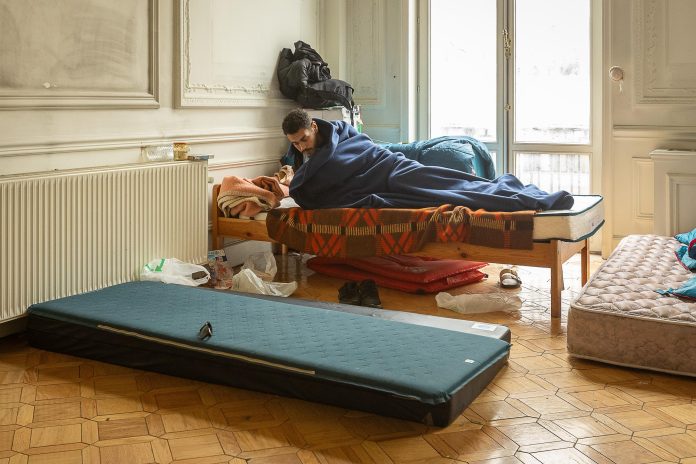The policy change, which takes effect on Monday, means that asylum seekers who have already been granted protection in another EU country will no longer be able to apply for asylum in Belgium.
From August 4, individuals who have already been granted protection status in other European Union countries will no longer be able to claim places in Belgian shelters. This decision, taken as part of “crisis measures,” aims to combat the practice of “asylum shopping,” whereby individuals apply for asylum in several countries. Asylum and Migration Minister Anneleen Van Bosseyt stressed that the goal is to relieve the overburdened system and make Belgium less attractive for secondary migration.
The new policy has sparked heated debate. Critics call it inhumane, pointing to the risk of increased homelessness among refugees, while supporters see it as a way to regain control over migration flows.
Reasons for the tightening of migration policy
Belgium has been facing an overload of its refugee reception system for several years. In 2024, around 40,000 asylum applications were submitted in the country, 15,000 of which came from people already registered or receiving protection in other EU countries.
This has placed an enormous burden on Fedasil, the agency responsible for housing refugees. Last year, shelters were 94% full, with a total of 36,077 places, but thousands of people, especially single men, were left homeless, waiting 3-4 months for their turn.
Political pressure also played a key role. The centre-right cabinet led by Prime Minister Bart De Wever made tightening migration policy a priority, aiming to create “the strictest system in Europe.” More than 8,000 lawsuits against Fedasil for failing to provide housing only reinforced the need for reform. As a result, the government decided to restrict access to shelters for those who already have protection in other EU countries in order to reduce secondary migration and ease the burden on infrastructure.
Details of the new policy
From August 4, Belgium has introduced changes aimed at reducing the number of applications and optimising the refugee reception system. Key measures include refusing to accommodate refugees who already have protection status in another EU country and speeding up the processing of applications from people who have previously applied in other countries.
The General Commission for Refugees and Stateless Persons (CGVS) now makes decisions on the inadmissibility of such applications more quickly, and the Dublin Agreement is being applied more actively to return migrants to the countries of first registration.
Minister Van Bosseyt has also launched information campaigns via YouTube and WhatsApp to discourage potential refugees from coming to Belgium. These campaigns highlight the overcrowding in shelters, strict rules and limited opportunities for those who already have protection in other countries. According to the authorities, these steps will allow resources to be focused on those who really need asylum and reduce Belgium’s attractiveness for secondary migration.
Consequences for refugees and society
The new policy has already begun to change the situation in Belgium, with both humanitarian and social consequences. For refugees, denial of access to shelters means an increase in homelessness, especially among single men, who already faced restrictions.
The increase in deportations under the Dublin Agreement could return many to countries with less favourable conditions, which is a cause for concern among human rights defenders. Refugees with temporary protection, for example from military conflicts, now face restrictions on family reunification and access to social benefits.
The new policy has divided society. The nationally oriented parties such as the N-VA and Vlaams Belang support the measures, considering them necessary to protect national interests. However, left-wing and green parties, as well as human rights organisations including Amnesty International, have criticised the government, pointing to the risk of a humanitarian crisis. The Netherlands’ decision to ban the transfer of refugees to Belgium under the Dublin Agreement due to “systemic failures” in the reception system has damaged the country’s international reputation, intensifying criticism both at home and abroad.
